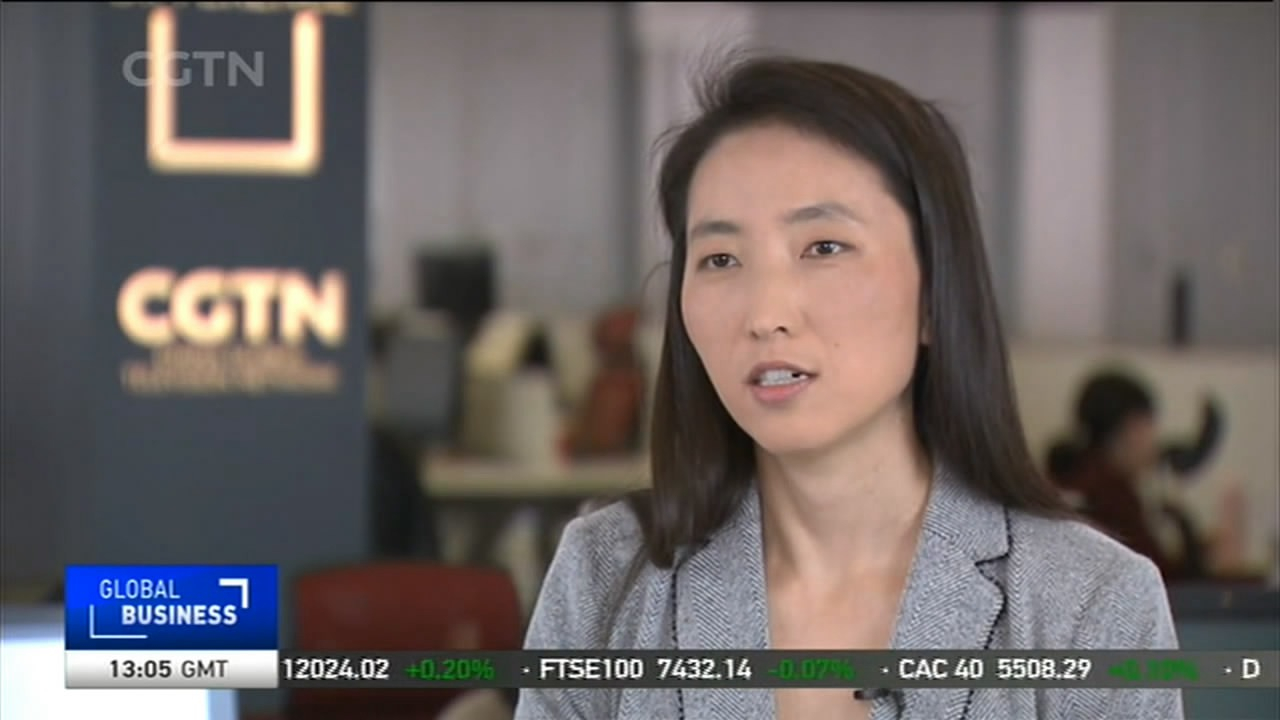
Economy
15:28, 16-Apr-2019
China EconTalk: Risks in property smaller than in stocks
Updated
17:07, 16-Apr-2019
CGTN Global Business
04:24

China's first quarter GDP growth is estimated at 6.2 percent while inflation and stock market will be major risks for Chinese economy in the future, according to Dan Wang, an economist with the Economist Intelligence Unit.
China's GDP growth outlook
China's first quarter GDP will be released on Wednesday while the market consensus is around 6.3 percent growth with increasing optimization for the economy during the rest of the year.
Wang bet on 6.2 percent for the first quarter and 6.3 percent for the whole year, but adding that “we might adjust up depending on how the trade talk goes.”
The forecast is partly thanks to the strong credit growth. According to official data released on last Friday, China's credit growth in March exceeded all estimates after a slowdown in February. Total social financing grew by a net 2.86 trillion yuan (about 426 billion U.S. dollars) in March compared to the previous month.
However, the economist mentioned that “usually there is a lag of monetary policy. The result (which refers to a strong credit growth) we see now is probably the money expansions' result last year.”
Risks ahead: Inflation, the stock market, un-funded private sector
One major risk in the Chinese economy going ahead is inflation, which might touch the psychological line – three percent, based on Wang
“It's not just the pork cycle is taking on, but also there is inflation pressure from the industrial sector, because of the oil price. So in the coming month, we anticipated the inflation to actually bridge the three percent,” she explained.

CGTN Photo
CGTN Photo
Meanwhile, she was concerned more on risk in the stock market rather than in the property market. “I think the largest risk is in the stock market, actually not much in property market at all,” she addressed.
“Because what we see now is very similar to 2015 – when we last saw stock market rally. And this time is similar in the sense that the money is sort of stuck in financial sector, it's still very difficult for private sector to borrow. And if the current optimism continues, we might see the stock market really booming around middle of this year,” Wang further elaborated.
And she was positive on Chinese property market, and anticipated a housing price spike earlier next year.
From her perspective, “the housing cycle in China is usually two to three years, and now we are on this rising chaos of current housing cycle. And the market optimism is taking up although the investment for real estate developers is not too high yet. But we can see that the housing sales have already gone up.”
As to the private sector, “it's easier on the margin to borrow money from the banking system and get funding from the capital market,” Wang acknowledged, but claiming that the overall situation is still “quite difficult”.
“By nature, the banking sector is quite conservative, it's hard to force them to lend to the private sector, especially smaller ones. And now there is a national push to set up this capital market, especially for technology companies. And that could add more risks and it may not help the small companies either, because only the large and creditable companies can borrow from the capital market,” she told CGTN.
Uncertainties for the euro
“Compared to the Chinese yuan, euro might get stronger in the coming year, but there are a lot of uncertainties around it,” the economist commented.
And she thought the uncertainties around valuation of euro might be attributed to deeper divisions within the Eurozone economies, as “the Eurozone is subject to how it deals with the most indebted countries like Italy, Portugal and Spain.”
“Italy is deeply in that and the overbanking problem is not solved. And Germany's economy is really in the semi recession period. The car industry is not in a very optimistic position,” Wang exampled.

SITEMAP
Copyright © 2018 CGTN. Beijing ICP prepared NO.16065310-3
Copyright © 2018 CGTN. Beijing ICP prepared NO.16065310-3